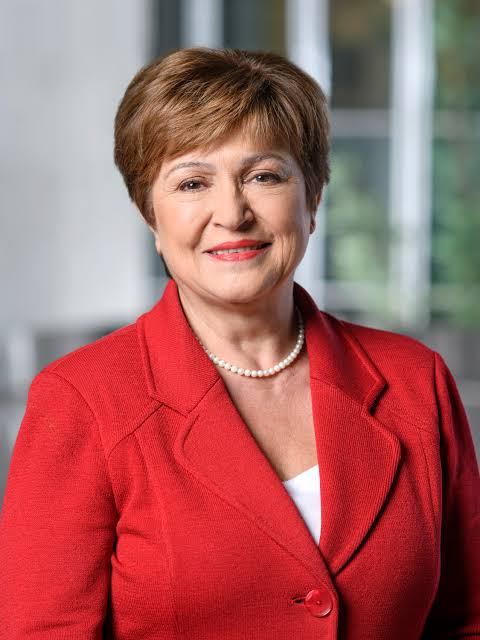
Kristina Georgieva, IMF Boss
By Folasade Akpan
The International Monetary and Financial Committee (IMFC) has come up with an agreement to create a Common Framework for handling sovereign debt treatments beyond the Debt Service Suspension Initiative (DSSI).
Kristina Georgieva, Managing Director, International Monetary Fund (IMF), said this in Washington D. C. at the IMFC opening press conference at the ongoing 2020 International Monetary Fund (IMF)/World Bank virtual annual meetings.
Georgieva said that there were two significant deliverables from the G20 which were endorsed by the IMFC.
She added that the frameworkwouldbe an important advancement in the international architecture for resolving sovereign debt matters in an orderly way.
As you may recall, the IMF has raised several issues with improving the architecture so we can have fair, quick, relatively simple, relatively low-cost resolution of unsustainable debt.
This common framework is a significant step in the right direction, she added.
She said that secondly, the IMFC had agreed to an extension by the G20 of the DSSI for at least another six months from the end of 2020 and for the option to extend it further if necessary.
She, however, said that as the IMF had been emphasising, further private sector participation was still needed.
She also said that the two deliverables were in addition to three broad policy areas earlier discussed.
The first policy was that countries should continue with essential measures to protect lives and livelihoods.
Stepping up vital health measures is imperative, as is well-targeted fiscal and monetary support to households and firms.
So, the IMFs message from these meetings is clear: avoid premature withdrawalpulling the plug too soon risks serious, self-inflicted harm.
Secondly, she urged them to build a more resilient and inclusive economy, adding that public investment, especially in green projects and digital infrastructure, could be a game-changer.
This, she said, was because it had the potential to create millions of new jobs, while boosting productivity and incomes.
Thirdly, she advised that countries should deal with debt.
According to her, global public debt was projected to reach a record high of 100 per cent of Gross Domestic Product in 2021.
This is partly because countries rightly need to boost spending to fight the crisis and secure the recovery.
Addressing this issue over the medium-term will be critical, but for many low-income countries, urgent action is required now, she said.
Georgieva, however, said that strong international cooperation was needed especially on vaccine development and distribution.
According to her, faster progress on medical solutions could speed up the recovery and could add almost nine trillion dollars to global income by 2025.
This, in turn, could help narrow the income gap between richer and poorer nations.
The News Agency of Nigeria (NAN) reports that DSSI is a G20 nations initiative announced in April in response to a COVID-19 call to action from the World Bank and the IMF.
It supports a Net Present Value (NPV)-neutral, time-bound suspension of principal and interest payments for eligible countries that make a formal request for debt relief from their official bilateral creditors.
It also encourages private creditors to participate on comparable terms.
The IMFC advises and reports to the IMF Board of Governors on the supervision and management of the international monetary and financial system. (NAN)
Source: NAN News